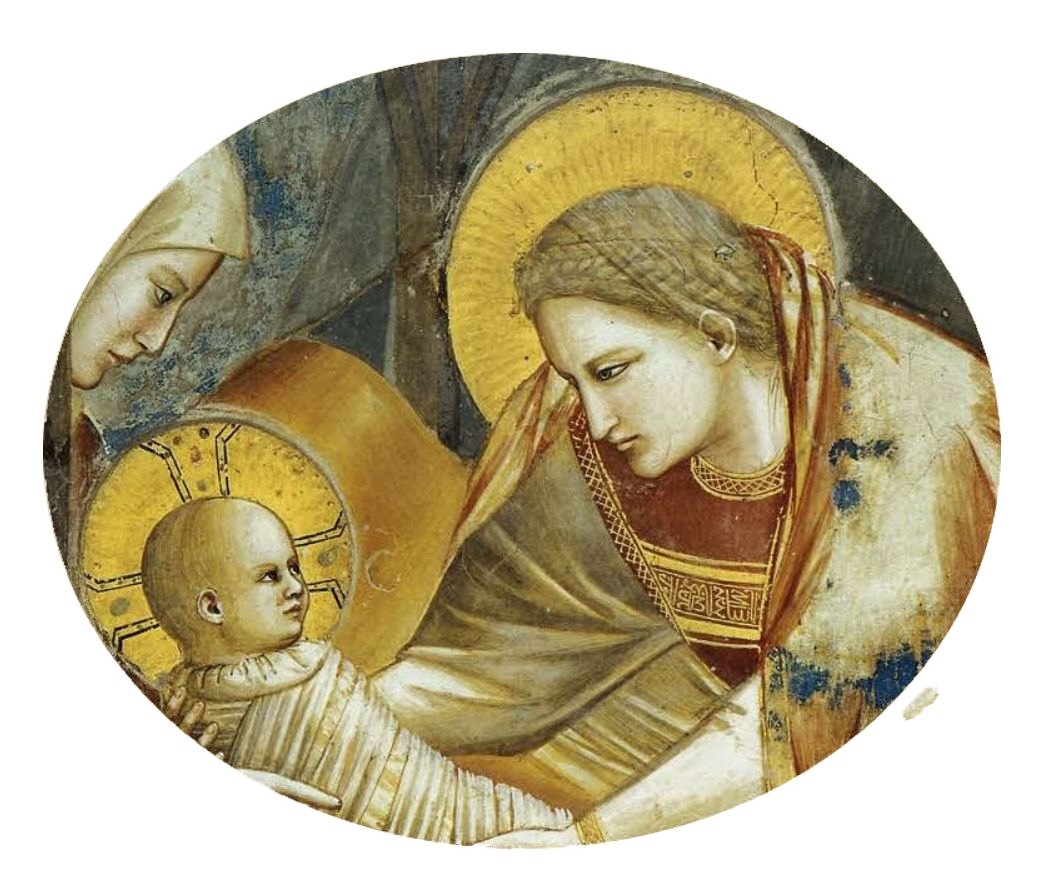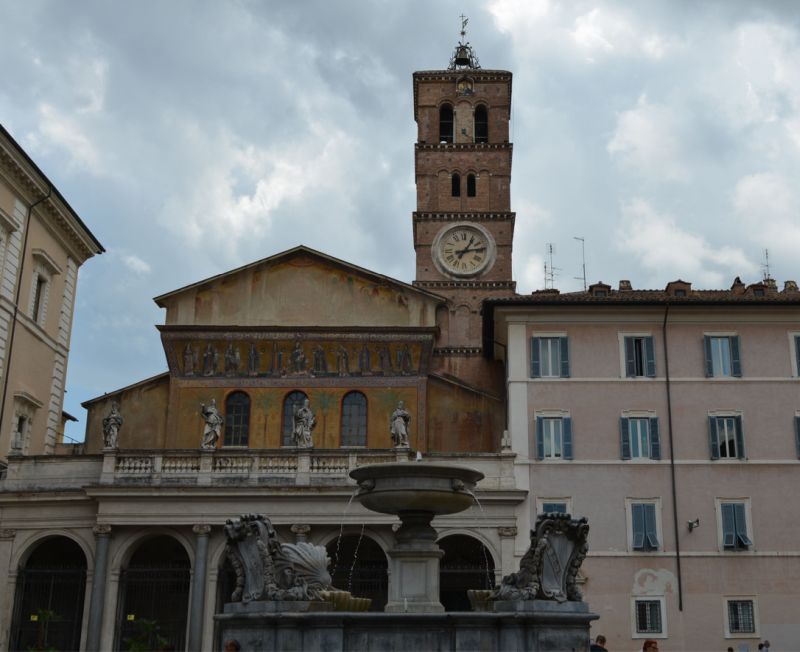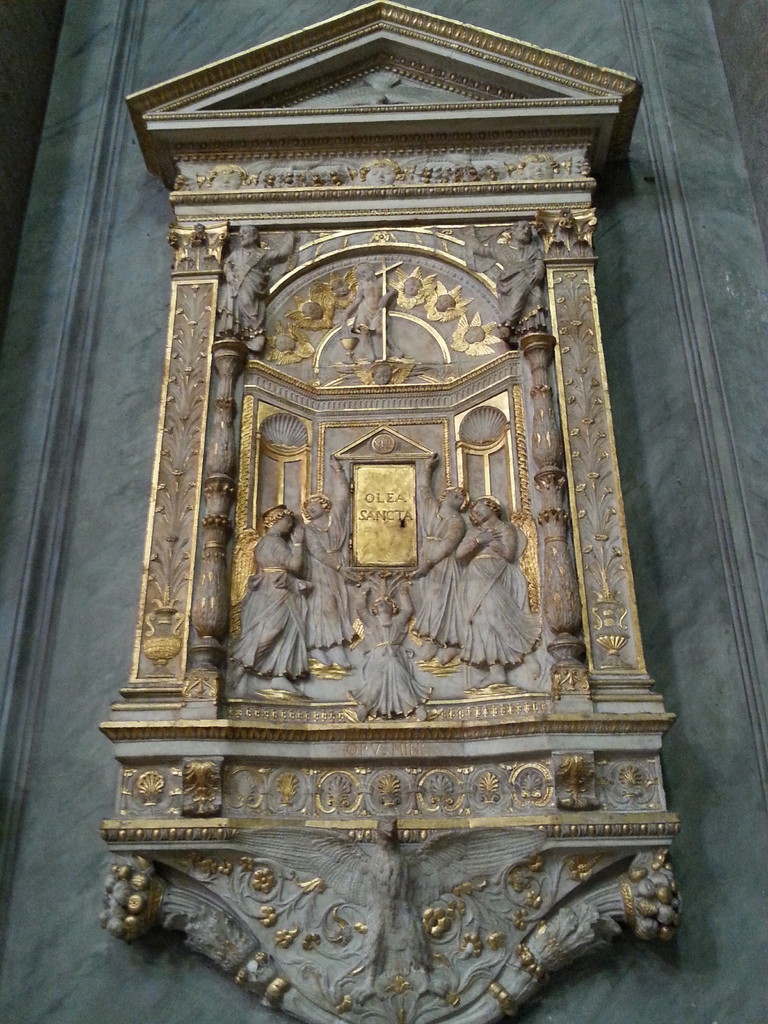|
Plinio Corrêa de Oliveira
The Joys of Holy Christmas
Saint of the Day, Friday, December 23, 1966 |
|
|
We have here two texts about the Nativity. One is an excerpt from a sermon by St. Bonaventure, and the other is an excerpt from Catarina Emmerich. I will read both but make only one comment. So, St. Bonaventure says: “This happy birth takes place when the soul, prepared by a long consideration, passes at last to action; when the good comes as the flesh becomes submissive to the spirit. Then, inner peace and joy are reborn in the soul. In this Nativity…” This is a very beautiful metaphysical commentary because he goes from Our Lord’s Nativity to something that is like a nativity in the workings of man. He shows there is something like the Nativity, that is, we have a pregnancy and afterward, the birth. Then a man begins to act. Something like that happens when a soul, prepared by a long consideration, that is to say, a long meditation, a long reflection, finally goes into action. There is something of a nativity about it. “When the flesh is submissive to the spirit, and the good work is accomplished, inner peace and joy are born in the soul. In this Nativity, there are no lamentations, no pains, no tears. Everything is a wonder, trembling, and joy. But if this birth pleases you, oh devout soul, think of being Mary, a name that means bitterness. Weep bitterly for your sins. It also means enlightenment. Become brilliant with virtues. Finally, it means Master or Mistress. Know how to master your passions, especially the flesh. Then Christ will be born in you without pain or labor. Then your soul will know and taste how sweet the Lord is. Oh happy stable of Bethlehem: in you I find the King of Glory. But happier than you is the pious heart that spiritually contains the one you could only contain bodily.” Thus, he compares a soul to the stable in Bethlehem. The soul contains Christ; in the soul, Christ is born as He spent His early moments in the stable. But the human soul is happier because the presence of Christ in it is something higher and nobler than the presence of Christ in the stable. It is a high-caliber meditation. Now, here we have repercussions of the birth of Christ among pagans, considered by Catherine Emmerich. When Jesus was born, I saw in Rome, on the other side of the Tiber, a neighborhood where many Jews lived. In that neighborhood, a fountain of oil sprang up and everyone marveled. They later built in that place a church to the Mother of God, Santa Maria in Trastevere.
Santa Maria in Transtevere (by Paulo Roberto Campos - ABIM)
This church is also named Santa Maria in Fonte Olei, a tradition in keeping with Ana Catarina’s vision. I saw that a magnificent statue of Jupiter had fallen to pieces in a temple whose vault had also collapsed. The pagans were filled with amazement and asked another idol, I believe Venus, what that meant, and offered sacrifices. The devil had to answer through the mouth of the idol: This has happened because a Virgin conceived a Son without ceasing to be Virgin, and has just given birth. I also saw something related to Emperor Augustus. When the Emperor descended from a certain place, he saw on the right side of the hill an apparition in the sky: it was a Virgin on a rainbow with a boy suspended in the air who seemed to come out of it. I believe the emperor was the only one who saw this apparition. He sent someone to consult with an oracle who had fallen silent and who, however, spoke of a boy to whom everyone should pay homage. The emperor then had an altar erected on the place on the hill where the apparition had taken place, and after offering sacrifices, he dedicated that place to the Firstborn of God. I also saw in Egypt an event that foreshadowed the birth of Christ. An idol that habitually uttered all sorts of oracles fell silent. The King had sacrifices made in all countries to get him to say why he was silent. The idol was forced by God to answer that it kept silent and should disappear because the Son of the Virgin was born, and a temple would be built in his honor in that same place. These references by Catarina Emmerich naturally have the veracity of all the others. Certain chronicles from pagan countries tell about wondrous facts that occurred on a particular night which one can identify as Christmas Eve. Predictably, revolutionary historiographers challenge the authenticity of these facts, but to me, this challenge does not seem to have any serious basis. And it is normal for it to be this way. On the night Our Lord is born and enters the world, there clearly should be two kinds of phenomena to serve as a milestone for the coming apostles and a reference point for their evangelization. And not only for that high end but also for the glory of God. It should be like that regardless of any other reason and circumstance. It was proper that some gracious miracles announced to the Gentiles the coming of an era of peace and joy. On the other hand, some terrible miracles needed to announce that the death of paganism had arrived. So you see, for example, two tremendous phenomena that took place in Rome. In this text, Catherine Emmerich refers above all to what took place in Rome. First, an oil spring is born. As such, it is a miraculous fact because oil is a liquid that cannot be in springs. A rationalist mind would say that it is petroleum, but the point is that the springing up of an oil mine on Christmas Eve is too much of a coincidence. In the language of all ancient peoples, oil represented anointing or grace. Oil is fragrant, soft, transparent, seems to contain light. It tends to soften everything to which it is applied. Because of that, Scripture often takes oil as a symbol of God’s grace. On the other hand, the Church uses oil in her sacraments for baptism, priestly ordination, confirmation, anointing of the sick. So the idea is that something “oiled,” something full of grace, scent, light, and attraction, had just happened. But at the same time that this happened, a statue of Jupiter collapsed and so did a vault of his temple. The grace of God springs the bottom of the earth comes like a principle that was humiliated but came to light. From the height of heaven, something falls like a principle that was exalted but must crumble to the ground because the hour of its destruction has come. Then Jupiter and the vault crumble as the oil rises. A historical era fades, and another historical era enters. At the same time, we see Augustus having the vision of a Child and obtaining, in wonderful circumstances, the answer that he was born of a Virgin. How beautiful it is, at night, to suddenly see a boy in the sky, and especially the most beautiful of all boys; beautiful with sacral, regal beauty; beautiful with priestly beauty, the beauty of a warrior and a miracle worker. What a wonderful sight! One does not know what Augustus must have thought of that, but the concrete fact is that the contrast is impressive. A fragile Child is born and appears in the sky. He has everything to enchant Augustus, a common soldier and a man with some governing skills, but a radical pagan who represented the low level aspects of ancient Rome. The contrast between the almighty emperor and the Child so much more omnipotent than the poor emperor is one of those striking contrasts. It is time for the pagan empire to disappear and for the Christian empire to begin under the only true emperor, Our Lord Jesus Christ. On the other hand, you see miracles multiplying in other places. As if struck with terror, the oracles, usually inspired by the devil, fall silent sometime before Christ comes to earth. The devil no longer speaks, he has nothing more to say. Yet, forced to speak, he says that a Child was born to a Virgin who remains Virgin, and because of that, there is nothing more to say. That is a proclamation that Christ is coming. You understand how this gives glory to God. We must always remember what the Gloria Patri says: Glory be to the Father, and to the Son, and to the Holy Spirit. As it was in the beginning, is now, and ever shall be, world without end. Amen. We must want the glory of God not only at the beginning and the end of time, but now. We must want the glory of God every passing minute as something that is good as such regardless of its possible repercussions on the course of human events. It is neither decent, advisable, or good for God to come to earth without working wonders because it is characteristic of His presence to work wonders. So, His glory required that on the days or months preceding or following Christmas Eve--that supreme date in history when the Incarnate Word was born--be marked by wonders of that nature. Is there any of that in contemporary Christmases? There has been. Many of us – at least the elders – have known an incomparable Christmas Eve grace. The whole environment seemed dominated by an influence, principle, or force that seemed to descend gently from the highest of heavens and fill the entire earth. It permeated especially churches but also homes and even streets. It entered souls and instilled in everyone a kind of gentleness, a kind of holy joy, a kind of certainty of the supernatural, mutual good will made up of charity in which everyone shared the same joy at the birth of Our Lord Jesus Christ. Therefore, it was not secular bad will but sacrosanct and splendid goodwill. That was the Christmas so properly set to music--in my opinion--by a little song that expressed well the sacred feeling that dominated Christmas in the streets while not being a sacred hymn with its unction and nobility. It was the little German song, Stille nacht heilige nacht, quickly invented by an elementary school teacher in Germany. It quickly spread all over the world because it expressed the feeling of the whole world. What is left of that today? For now, what is left is commercial Christmas. This city is full of noisy super-motorcycles, of the worst commercial advertisements, of pressure from retail stores to force everyone to buy as much as possible to place the products of an industry that must be continually selling or it dies. Therefore, it is a Christmas turned to material concerns in which the gift has lost its former meaning as an act of respect and love to become merchandise. The whole Stille nacht. heilige nacht environment has ebbed into Christmas parties where the tree and table are filled with presents; people present each other with cash equivalent gifts to balance out and give what they receive, and to avoid hostility – yet another form of commerce. What is left of that Christmas? There is something left, and it truly is a sacrosanct remnant. It is the remnant that shall return. Everything remains! Because when you have the remnant that shall return, you have everything. There remain the souls of those who desire, feel and want this Christmas and are indignant at the fact that society’s environment no longer supports it. They have the real Christmas within themselves because of their inner feeling of protest, holy nostalgia, and even holier holy hope that this will be reborn in the Reign of Mary. As we gather for supper at our seats and later meet at Pará Street to watch the audiovisual, we should keenly remember that we are the ones, without any merit on our part, loved most especially by Our Lady and gratuitously chosen to be receptacles, tabernacles, and vases of the Christmas spirit in São Paulo, in this year of 1966. The same applies to all Catolicismo nuclei throughout Brazil, Cruzada, Fiducia, Montevideo’s thriving TFP nucleus, and so on. Our Lady has chosen a few so that the real Christmas could take refuge among them. So, more than seeing our suppers as an opportunity to eat and be happy, we need to see them as an opportunity to practice an act of joy and charity toward Brother Body, as St. Francis of Assisi called it, associating brother body with the much greater joy that must be that of the soul: the religious, ineffable, sacrosanct joy of Christmas over the fact that Our Lord Jesus Christ came to earth. Who can describe Our Lady’s joy? Who will be able to gauge it? Who could have any idea of the elevation of her spirit and the highest considerations inundating her soul? Have you ever meditated on Our Lady’s joy at the nativity scene in Bethlehem? There is so much talk about her joy next to the Cross. But how admirable was her joy at the crib, a human creature, seeing that Child was Her Son and the Son of God. Knowing things through her human senses and seeing that perfect symbol of divinity in human nature and in Him, the seed of all that She knew would come out. That was Her Son, but more than that, it was the Son of God. So at tomorrow’s Mass, and later at the supper, should ask Our Lady for two feelings: first, indignation and rejection at this commercial prostituted and profaned Christmas. And then we should ask Our Lady for the feeling of true Christmas and share Her religious and sacred joy. They usually say that wars of religion are the fiercest because there is no hate more furious than religious hatred. It is true. If faith did not inspire hate, it would not be true. For this very reason, there can be no deeper or more authentic joy than the religious joy of Christmas because if religious hatred is the deepest of all, religious joy and love must be the deepest of all. Let us ask for this joy of soul so that we do not sit at our tables as good gastronomers but as sons of Our Lady who think of Her joy, share Her joy, and properly, justly, and worthily continue the traditions of good food of Christian civilization, also knowing how to appreciate what gives the body a joy in line with the joy of the soul. We must ask for religious joy, sacred joy, very elevated joy. The joy of Christmas and gateway to the spiritual life of many of us who feel so often feel how religion is hard and difficult but do not always feel the sublimely joyful, serious, and profound aspect of sacred things. Anyone who does not know this joy does not know joy on the face of the earth. Let us ask it for us and all our brothers in Brazil and abroad. |
|




